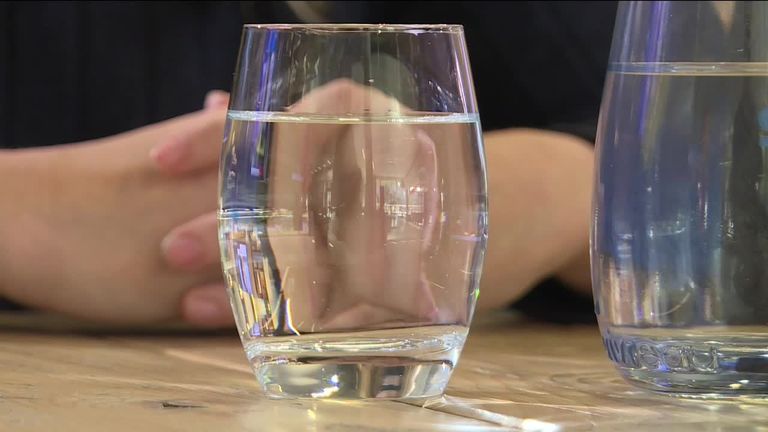Microplastics found in penises for first time, researchers say – raising questions over impact on sexual health | Science & Tech News

Microplastics have been found in penises for the first time, with scientists raising questions about their impact on sexual health.
A study, published in science journal Nature, assessed the tissue from six men who had undergone surgery treating erectile dysfunction.
In 80% of the samples, seven types of microplastics were identified, with some as small as two micrometres – or two thousandths of a millimetre.
“The detection of microplastics in penile tissue raises inquiries on the ramifications of environmental pollutants on sexual health,” scientists said in the study.
Almost half of the microplastics found were polyethylene terephthalate, commonly used to make clothes and food and drink packaging.
Polypropylene – a harder microplastic also used in packaging – formed 34.7% of the substances.
Some were as large as half a millimetre, according to researchers.
“Our study presents a ground-breaking investigation into the presence of microplastics in penile tissue,” researchers said.
“By shedding light on the presence of microplastics in human tissues, our research adds a crucial dimension to the ongoing discourse about the effects of environmental pollutants on human health, with a specific focus on male sexual health.”
Dr Ranjith Ramasamy, who led the research, told Sky News more studies are needed to investigate if microplastics cause erectile dysfunction.
“Since we know it lingers in the penis, we need to now focus on research that could explain mechanism,” he said.
“We were not surprised by the findings because of previous studies demonstrating presence of microplastics in the heart and blood vessels.”
Microplastics can enter the human body through the food we eat, water we drink, air we breathe or simply through touch.
They were found in blood for the first time in 2022 and more recent research links their contamination to more severe conditions.
A study published in March this year found patients with microplastics in their blood vessels were more likely to suffer a stroke, early death or heart attack.
The researchers identified plastic in the blood vessels of almost three in five (58%) of the 304 patients enrolled in the study in Italy.
Keep up with all the latest news from the UK and around the world by following Sky News
Tap here
Read more:
Scientists hopeful of game changing Parkinson’s test
Breakthrough means giant could be reversed
Those findings do not prove the plastic particles caused the heart attacks and strokes, as the patients could have been exposed to other risk factors.
But they chime with other research that found microplastics harm human cells, released by Hull York Medical School and the University of Hull in 2021.
Please use Chrome browser for a more accessible video player

2:23
2019: Microplastics found in UK tap water
Microplastics may even contribute to climate change, with researchers finding contaminants in clouds surrounding Japan’s Mount Fuji.
The research published on Wednesday was authored by experts from the University of Miami, University of Colorado, San Rafaele University in Milan and German research institute Helmholtz-Zentrum Hereon.
Recent Posts
- EAA brings back Homebuilders Week webinars for new and experienced builders
- Boeing-backed EVIO launches EVIO 810 hybrid-electric regional aircraft program
- Netflix jet activity spikes days before Warner Bros. acquisition offer
- Daher Kodiak 900 aircraft recieves Brazilian airworthiness certification
- 20-year-old pilot wins $2.4M Hawker 400XP in MrBeast challenge







Recent Comments